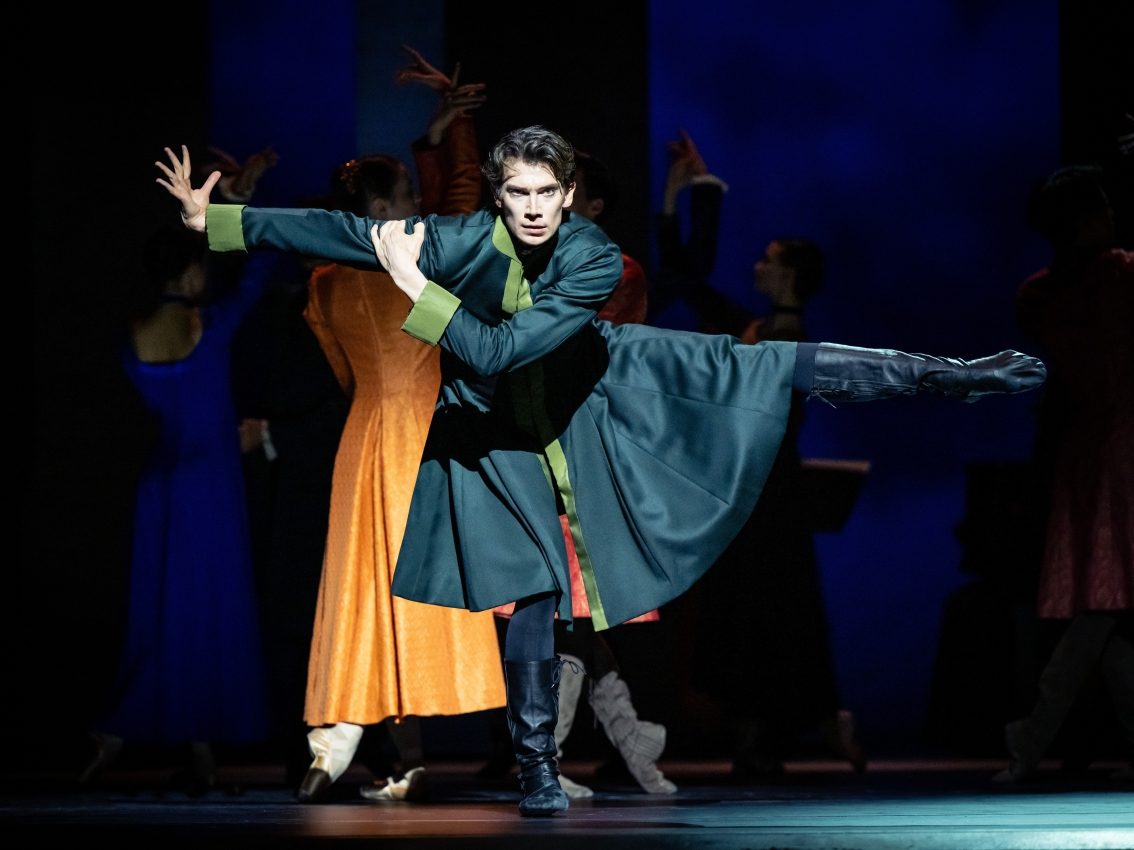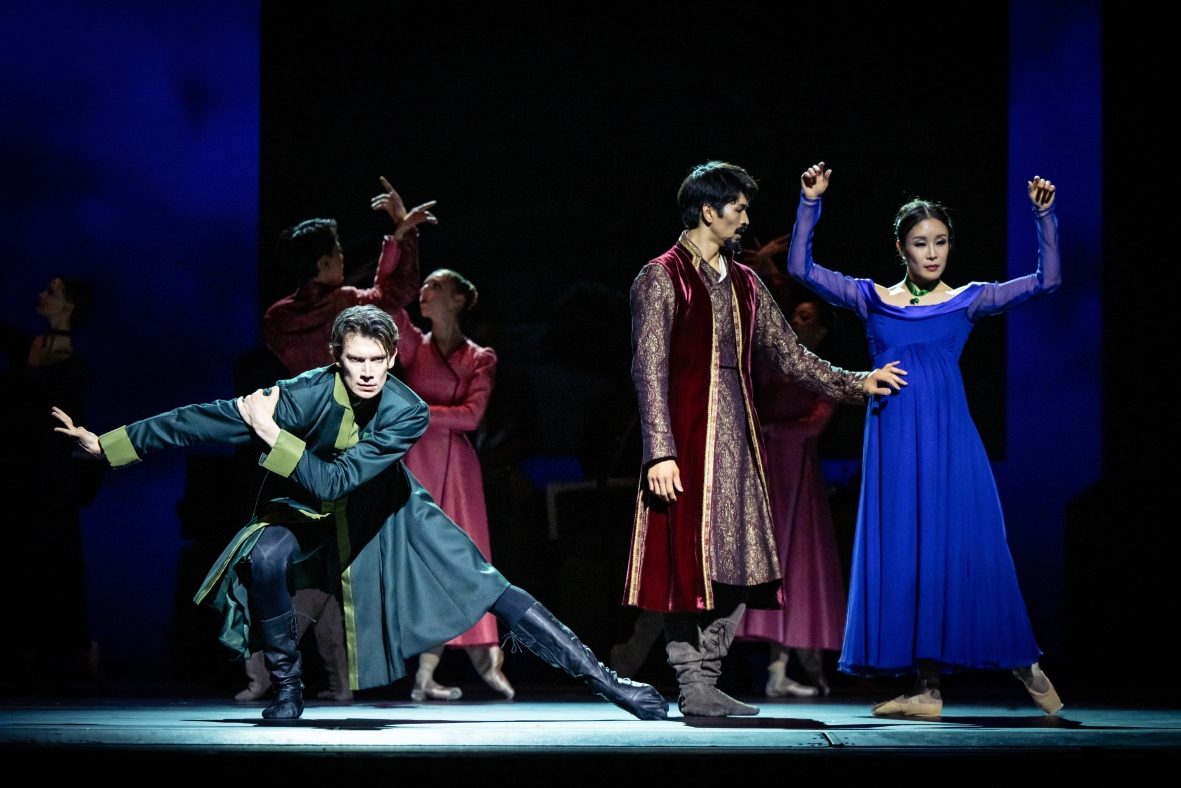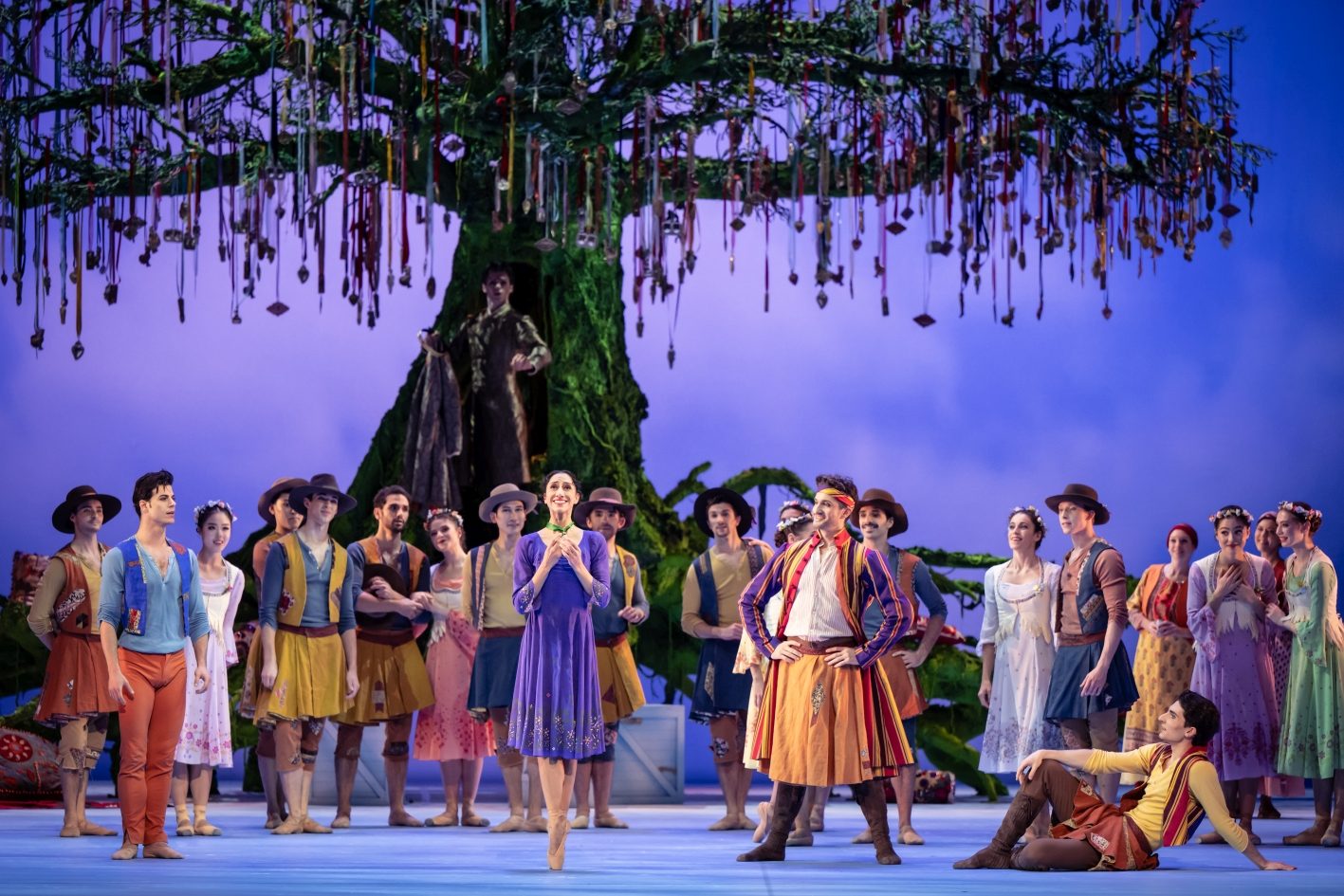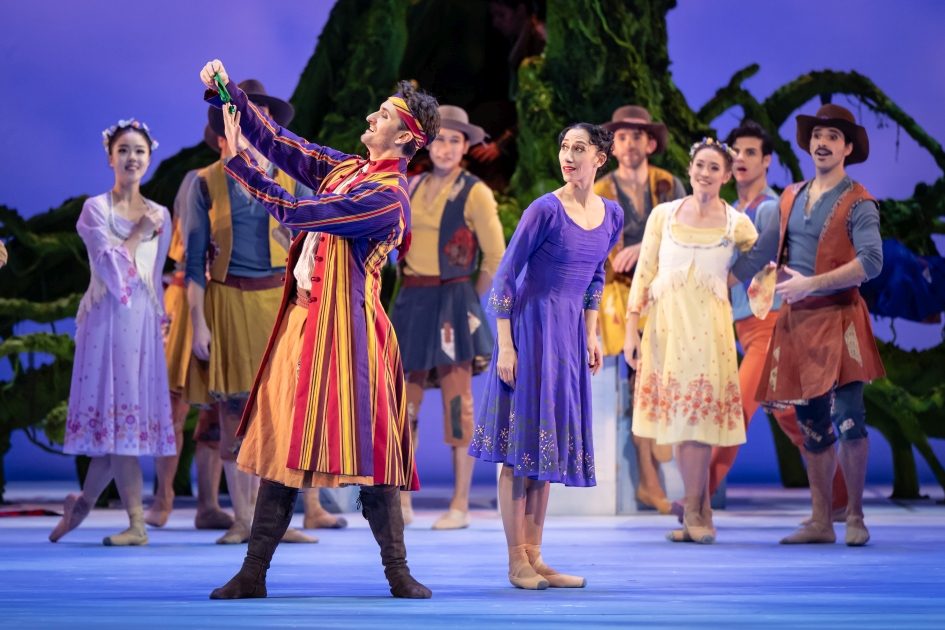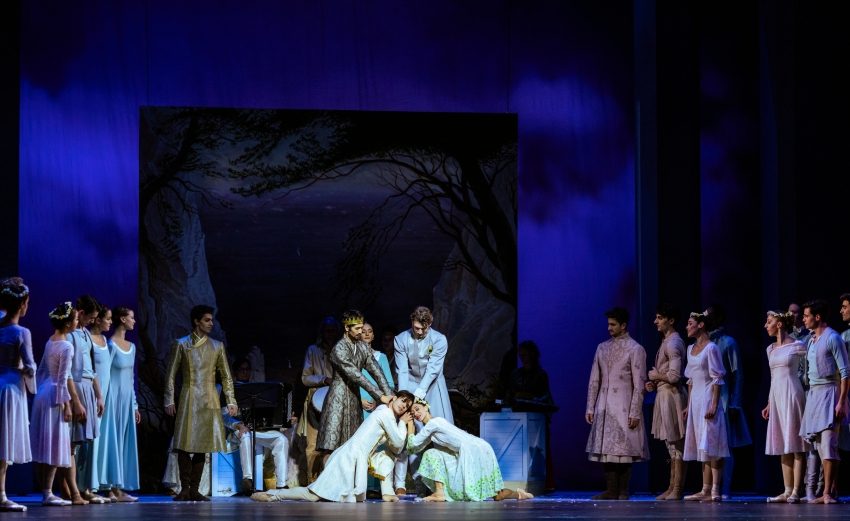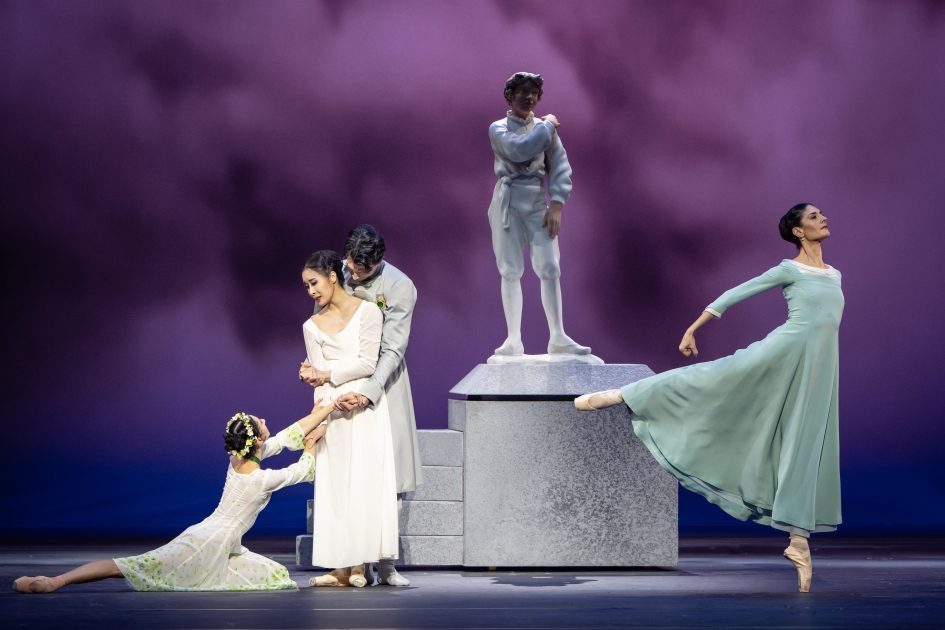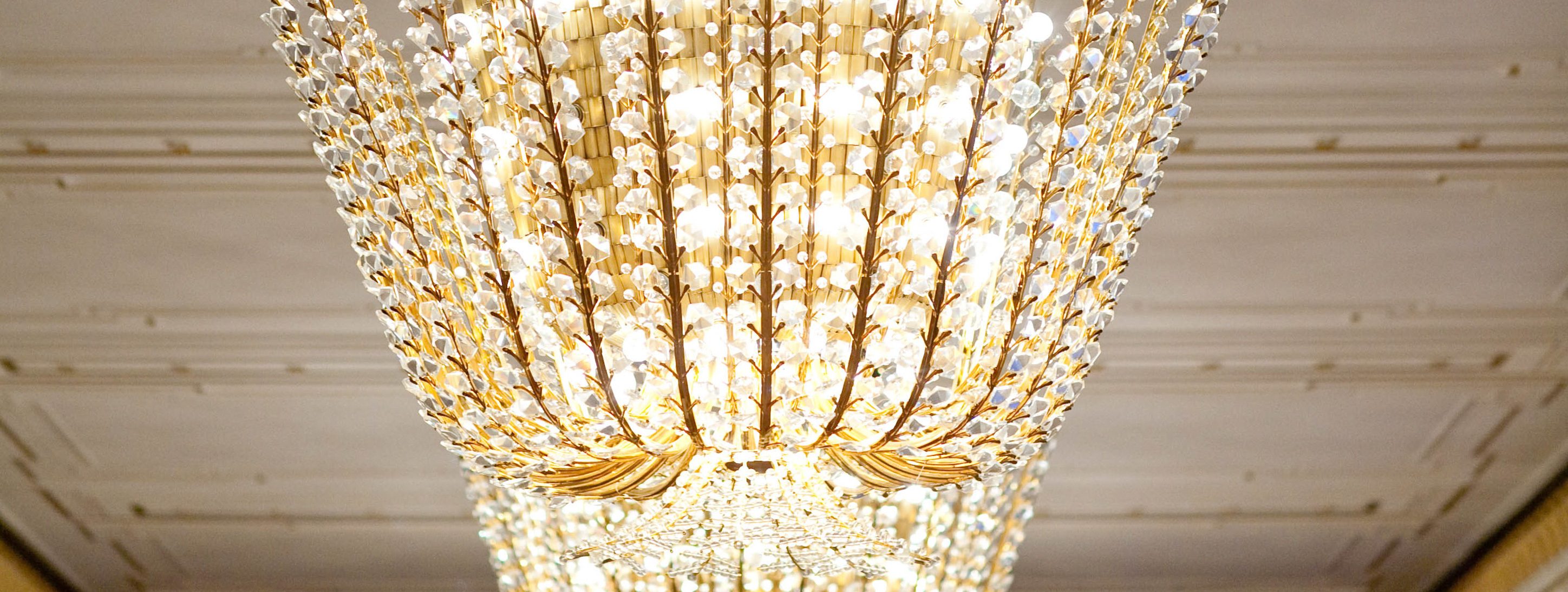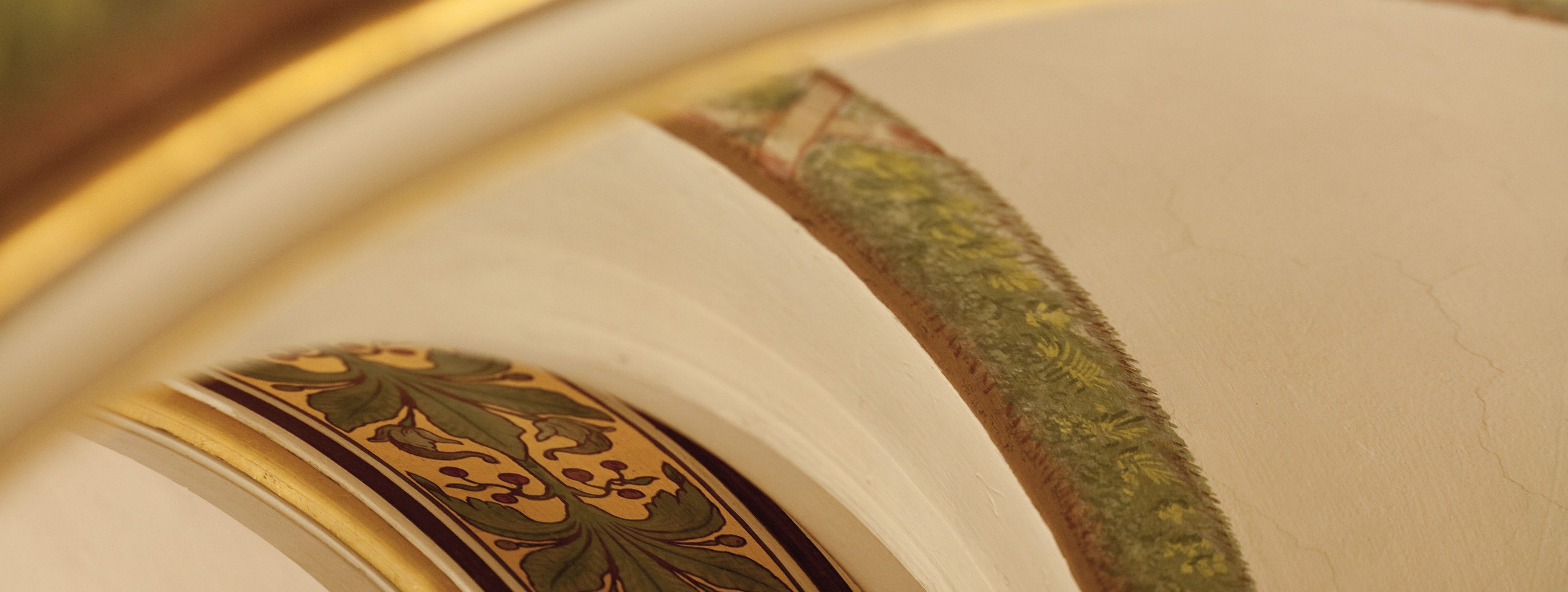
About the production
With The Winter’s Tale, based on William Shakespeare’s tragicomedy of the same name, the British star choreographer Christopher Wheeldon has created a modern ballet about second chances that tells a tense story of the most fundamental human emotions surrounding jealousy, revenge, love and redemption:
“A story of forgiveness and transformation, ultimately proving what we are all capable of: cruelty and compassion, shades of light and shades of darkness”, so Wheeldon.
The Winter’s
Tale
Storyline
Two kings separated as children are reunited in adulthood. One king, Leontes of Sicilia, marries Hermione, giving her a beautiful emerald. They have a son, Mamillius, and are blissfully happy. The other king, Polixenes of Bohemia, visits the court of Leontes. He is delighted to be reunited with his old friend and stays for nine months. By the time of his departure, Hermione is soon to give birth to her second child.
The court of Sicilia
It is the day of Polixenes’ departure. The Bohemian court say goodbye to their Sicilian friends. At Hermione’s request, Polixenes agrees to stay on another week. In a flash of jealousy, Leontes becomes convinced that his wife has been unfaithful and is carrying Polixenes’ child. Jealousy turns to rage, and he attacks Polixenes, who flees back to Bohemia. Leontes publicly accuses Hermione of adultery and treason, then has her arrested. This so distresses Mamillius that he falls seriously ill.
In prison, Hermione has given birth to a daughter. The head of her household, Paulina, brings the newborn to Leontes, hoping to convince him that the baby is his daughter. Instead, Leontes violently rejects the child, then orders Paulina’s husband Antigonus to abandon it in a remote place. Antigonus sets sail into a brewing storm with the little princess and some treasure, including the emerald once given to Hermione by Leontes.
Hermione is brought to trial. She pleads her innocence. But Leontes, now quite mad, refuses to believe her. Dazed and feverish, Mamillius enters the courtroom. When he witnesses the tragedy between his parents, he collapses and dies from distress. Seeing her dead child also robs Hermione of her life. Leontes is forced to realize the disastrous consequences of his terrible mistake.
A hillside in Bohemia. Sixteen years later
The king’s daughter has grown into a young woman with the shepherd who found her and named her Perdita (The Prodigal). She is in love with Prince Florizel, the son of King Polixenes, whom the villagers only know as a shepherd boy. She dances with him under a mighty tree.
The villagers arrive for the springtime festival. King Polixenes, who has heard that his son has been cavorting with a shepherdess, sends his steward to spy on Florizel. When his suspicions are confirmed, Polixenes is enraged, and demands to see for himself.
At the festival, Perdita is to be crowned May Queen. In honour of the occasion, Father Shepherd presents her with the emerald necklace he found with her on the beach. Polixenes and his steward arrive in disguise, keen to see what Florizel is up to. On witnessing Florizel’s engagement to a mere shepherdess, Polixenes reveals himself. He is furious with Florizel, and condemns Perdita and her family to death. They all flee by boat to Sicilia, pursued by Polixenes.
A clifftop in Sicilia
King Leontes mourns by the grave of his wife and son, watched over by Paulina. Perdita and Florizel’s ship approaches Sicilia.
The palace in Sicilia
Perdita and Florizel appeal to Leontes to allow their union, and to intercede with the enraged Polixenes on their behalf. Leontes is enchanted by the prince’s resemblance to his former friend and – remembering his lost children – agrees to help the young couple.
Polixenes has followed the fugitives. In trying to prevent the union violently, Perdita’s emerald necklace appears – proof that she is the long-lost princess of Sicilia.
Florizel and Perdita celebrate their wedding. As the celebration draws to a close, Paulina leads Leontes to a new statue of Hermione and Mamillius. Full of remorse, the king places his hand on the arm of his son’s statue. Suddenly the monument comes to life: Hermione has survived the shock in the courtroom and has been hidden by Paulina for 16 years. Hermione embraces Leontes. Paulina brings Perdita, in whom Hermione recognises her daughter. The family is reunited.
With its world premiere 2014 at the Royal Ballet in London, Wheeldon gifted the ensemble The Winter’s Tale as another “future classic” following his 2011 hit Alice’s Adventures in Wonderland – and it now takes its place in the repertoire of the Vienna State Ballet. The Briton, whose roles include Artist Associate at the Royal Ballet, is one of the leading choreographers of his generation and has been hailed as “the magician who has dressed the story ballet in contemporary clothing”.
The Winter’s Tale, winner of the Prix Benois de la Danse in 2015 for numerous categories including “best classical choreography”, brings together darkness and light, weighty and more frivolous themes, tells of destructive madness as well as love and hope, forgiveness and reconciliation. Wheeldon’s choreography approaches Shakespeare’s complex narrative with dramaturgical intelligence and rich visual imagery. The movement language is notable for its complex characterisation: at times it is muscular and expressionistic, at times gentle and poetic. In a prologue and three acts in very different styles, the choreographer conjures up contrasting worlds that congenially evoke their divergent core emotions: while Act One is dominated by tragedy, Act Two is lighter, airier and full of pure dancing scenes. The finale in 3rd Act centres on the forgiveness and reconciliation of all the characters.
Following the for Wheeldon created ballet scores Alice’s Adventures in Wonderland and Like Water for Chocolate, among others, the English composer Joby Talbot has made another considerable impression on dance composition in recent years with his commissioned work for The Winter’s Tale. He skilfully fuses classical and world music and responds to the differently designed three acts. A particular highlight is the second Act, in which a band plays melodies reminiscent of folk music on stage and is integrated into the action. Talbot chose a wide variety of instruments from all over the world for this, such as the Indian bamboo flute Bansuri or African and South American drums: “I wanted to use folk instruments but didn’t want the music to sound like it was from a specific place in the real world. Shakespeare’s Bohemia is an idyllic, Arcadian paradise, not a real country, and I was keen to try to create the illusion that we are getting a tiny glimpse of the rich musical culture of this imaginary realm.”
